SSCS Was There: Kyoto, Japan (Part 2)
What an interesting place!
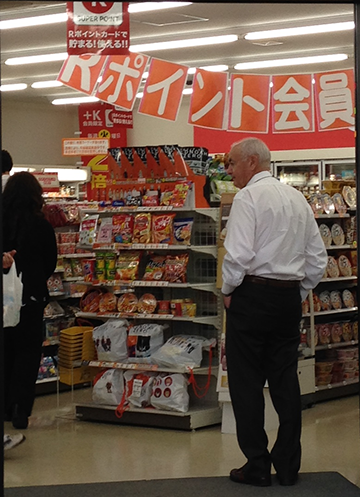
SSCS Vice President of Sales and Marketing Al Stoeberl checking out Circle K Kyoto.
If you missed part one of our series on our trip to Kyoto, you’ll probably want to read it first. Click here to pull it up.
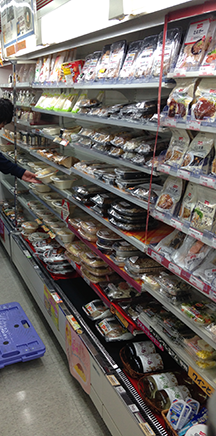
A wide variety of pre-packaged foods is a Japanese C-store staple.
Part of SSCS‘ trip to Kyoto gave us the opportunity to visit Japanese C-stores managed by Circle K Sunkus Co., Ltd. In the just over a year this blog has been in existence, we’ve linked to and retweeted various articles about the many fascinating aspects of the Asian convenience store. That our own SSCS sales representatives got a chance to get up front and personal with a number of Japanese operations was a real treat for us.
When an American walks into a Japanese C-store, chances are one of the first things he or she will notice is the preponderance of pre-packaged foods on the shelves. “I’d say that on average 40 percent of the items in the store are pre-packaged,” says SSCS Sales Manager Shawn Herrick, “where in the U.S.—even in the stores that have made a strong commitment to food service—you’ll see a fraction of that.
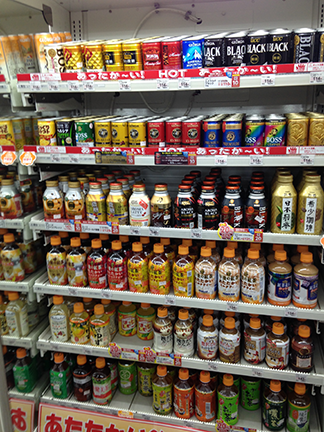
A variety of exotic drinks awaits you!
“Snacks are certainly being made available this way, but in many cases we’re talking complete meals vacuum-packed for the busy professional—often rice, a vegetable, and a seafood or other entrée. The fresh and speedy approach is designed to be attractive to a younger demographic that is not only coming into its own financially, but poised to grow at an unprecedented rate over the next two decades in some Asian countries.”
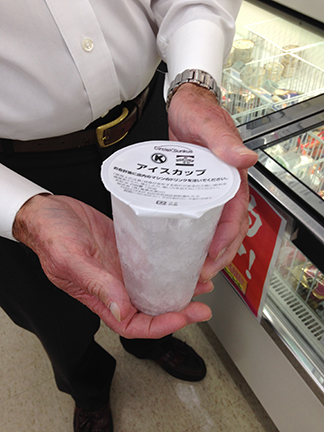
Ice for sale in a cup. See, we told you everything was pre-packaged!
The meals are assembled offsite. The vendors that put them together—in operations sometimes known as “commissaries”—if not owned by the corporation that also owns the store, usually have exclusive contracts with the brand and are vetted rigorously to help eliminate the unreliability that often plagues third-party relationships in this part of the world. The branding on the packages is usually the store’s, no matter who is charged with assembling it.
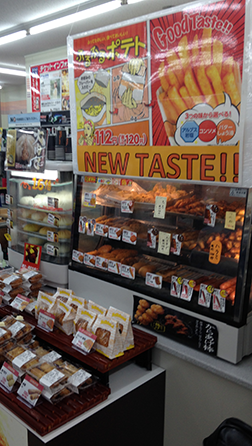
Dynamic signage at a hot food display.
SSCS representatives also noted the frequent use of LED displays for the purposes of advertising and marketing as an alternative to the kinds of posters, signs, and cardboard cutouts traditionally used for promotions. “The manager takes a flash drive, plugs it in, and the sales loop begins,” Herrick explains. “The stores are incredibly clean anyway; reducing sales-related clutter makes a difference and creates an inviting environment for the customer, which is at the heart of what the business is trying to achieve.”
The photos throughout this page were taken by our sales team in a variety of Circle K/Sunkus stores. We hope you enjoy them. AAAAAAAAAAAAAAAAAAAAAAAAAAAAAAAAAAAAAAAAAAAAAAAAAAA
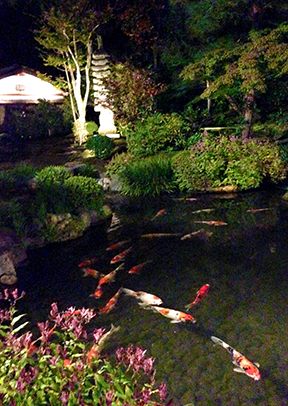
The tranquil gardens at Nanzenji Junsei restaurant.
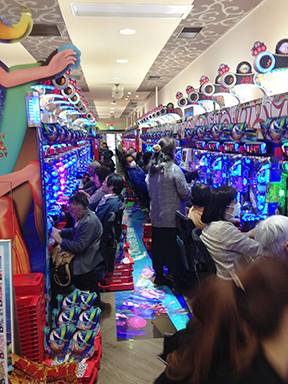
Gamers in downtown Kyoto.





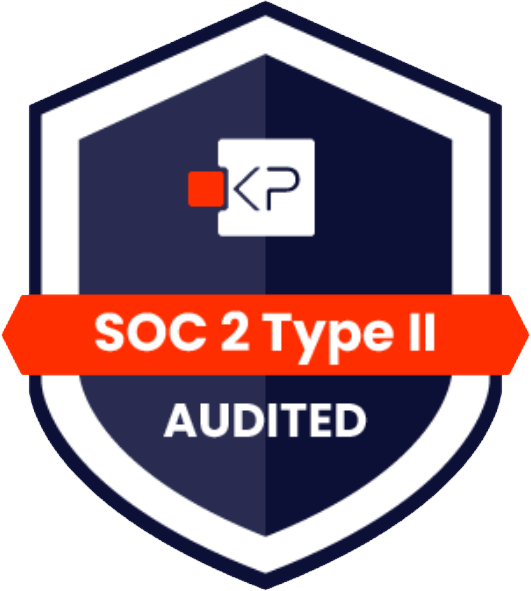
Leave A Comment